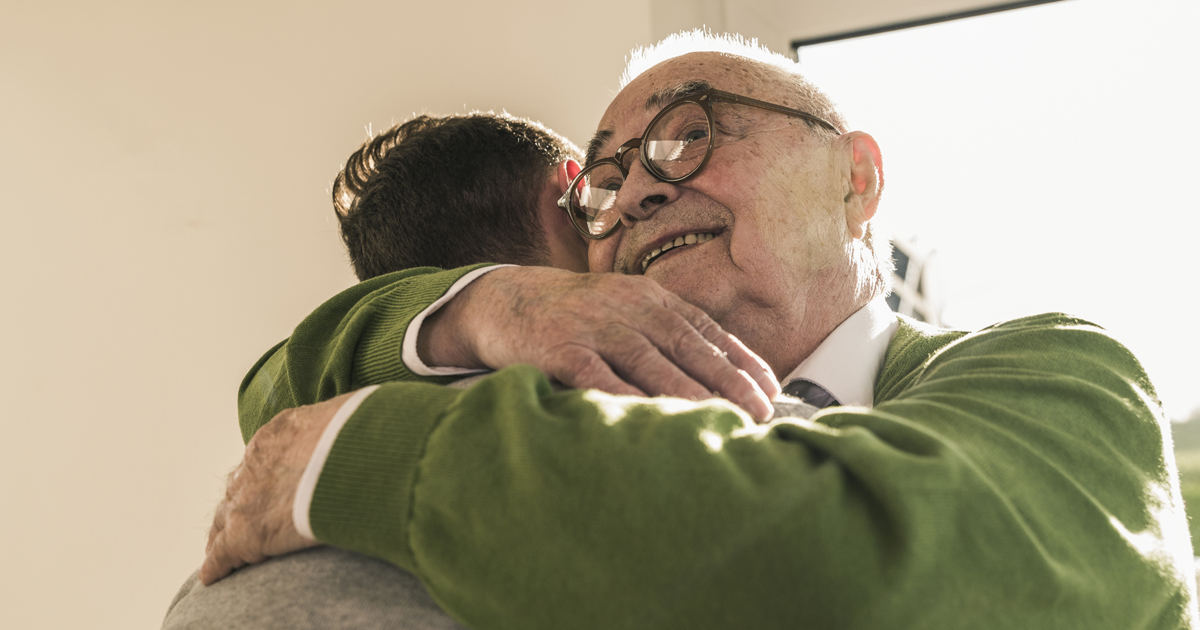Family Ties: Supporting Aging Parents and Grandparents

As your family members get older, their needs change. Whether you’re actively caring for a loved one or simply want to know what support is available, the primary care team at AHN Allegheny Valley Hospital is here to guide you.
Understanding the challenges of aging
To best take care of your loved ones as they age, it’s important to first understand what mental and physical challenges they may face.
Changes in movement and physical health
As people age, everyday tasks like moving around the house, getting dressed, and making meals can become more difficult. Some signs that your family member may need more support include:
- Trouble getting out of bed
- Ongoing back, hip, or knee pain
- A chronic condition that makes it harder to breathe
Regular doctor visits and a little extra help at home through eldercare services can improve patients’ safety, comfort, and well-being.
“It can be hard to help loved ones understand why they may not be able to do things the same way they used to,” said Danielle Papincak, DO, internal medicine physician at Allegheny Valley Hospital. “We help family members create a safe, supportive environment so their loved ones feel cared for and more confident in daily life.”
Disorders that impact thinking and communication
In addition to physical changes, some people also face changes in memory, communication, or mood as they age. These may be signs of a cognitive disorder. Common types include:
- Alzheimer’s disease – This often starts with forgetting names, repeating questions, or losing track of time or events.
- Dementia – A decline in mental ability that interferes with daily life. Some early signs of dementia are moodiness, confusion, and getting lost in familiar places.
- Lewy body dementia – A type of dementia where proteins called ‘Lewy bodies’ develop in nerve cells and affect the parts of the brain that control thinking, memory, and movement.
While these conditions don’t have one clear cause, healthy habits like eating well, staying active, and not smoking may help lower the risk.
If your loved one is diagnosed with a cognitive disorder, doctors at Allegheny Valley can talk with you about ways to support them, and how to use tools like calendars or alarms to help them remember daily tasks.
Caring for your loved one's whole health
Allegheny Valley’s primary care approach is designed to treat every aspect of your loved one’s physical, mental, and emotional health. The team offers many resources to tailor care to their needs, including:
- Virtual doctor visits for patients who have a hard time leaving their house
- Healthcare@Home aides to help with bathing and hygiene
- Visits with behavioral health coaches and social workers to address mental health challenges
- Help with medication
- Medical alert devices or senior monitoring systems for help during falls or emergencies
- Driving classes to help older patients stay safe on the road
The team can also support you in making decisions about assisted living, skilled nursing care, and, as your loved one nears the end of their life, hospice care. They will talk with you about what environment is safest for your loved one as they age, and how to discuss the transition with them.
“Talking with aging family members about whether it’s still safe for them to live at home can be very hard,” said Dr. Papincak. “We help caregivers be as informed as possible about living options for their parents or grandparents, so they can make the right decision with their family.”
Helping you support your loved ones
AHN Allegheny Valley Hospital’s primary care team is here to help you feel more supported in caring for your loved ones as they get older. Learn more about Allegheny Valley’s personalized care services for families.
About Danielle Papincak, DO
Danielle Papincak, DO, is an internal medicine physician, specializing in primary care. She provides patient-centered care for preventive exams, ongoing conditions, illness, or injuries and applies best-practice techniques to help ensure long-term patient outcomes.
Allegheny Valley Hospital provides health care services, education, and support to more than 160,000 residents in portions of Allegheny, Butler, Westmoreland, and Armstrong counties.

